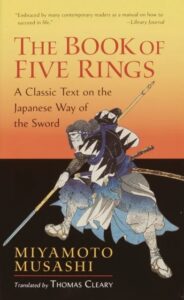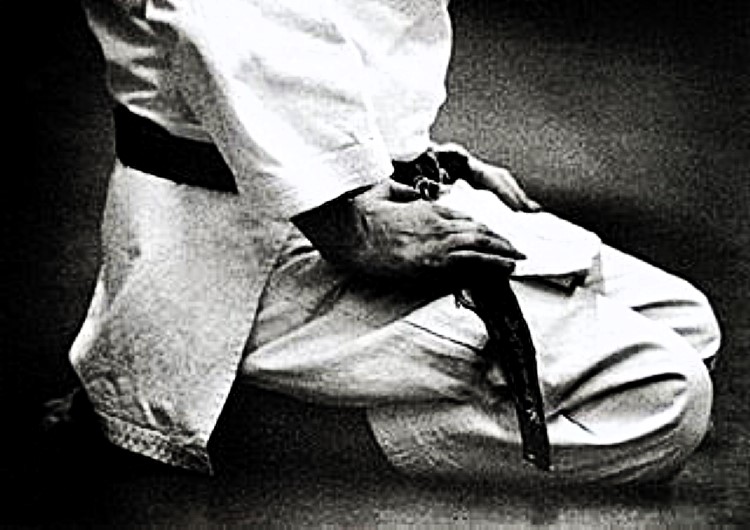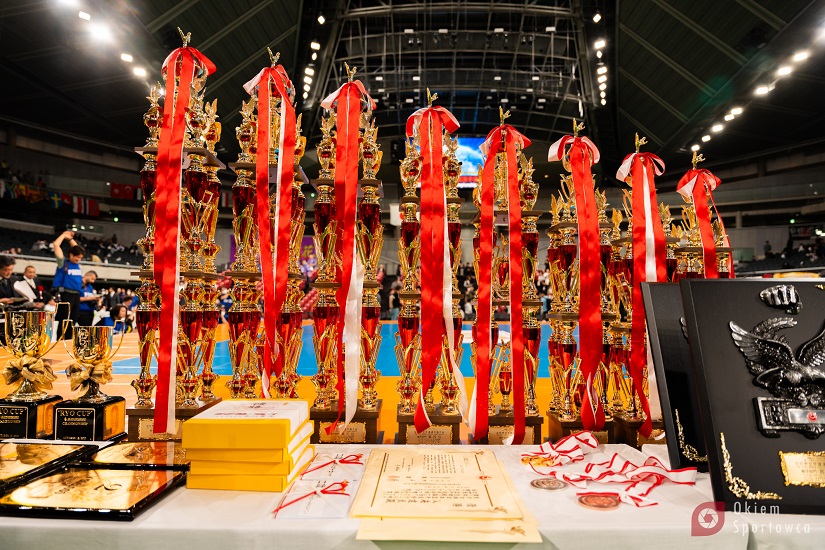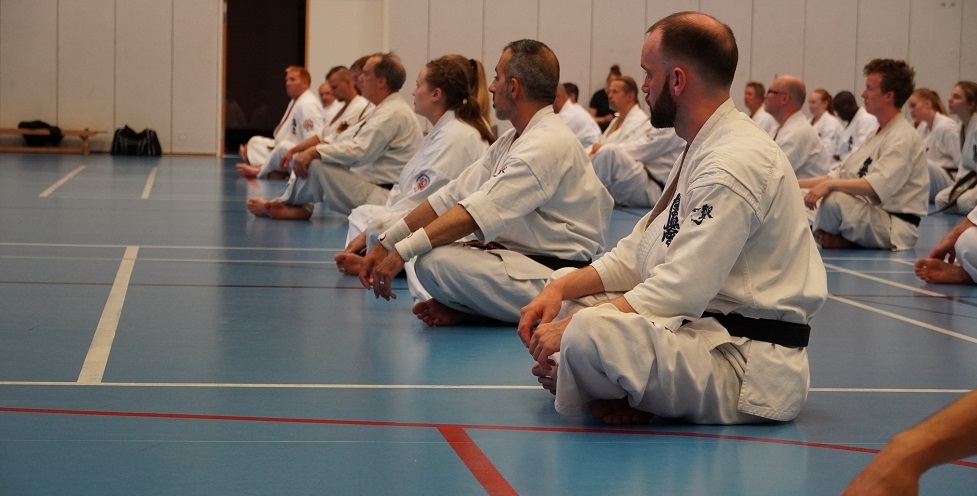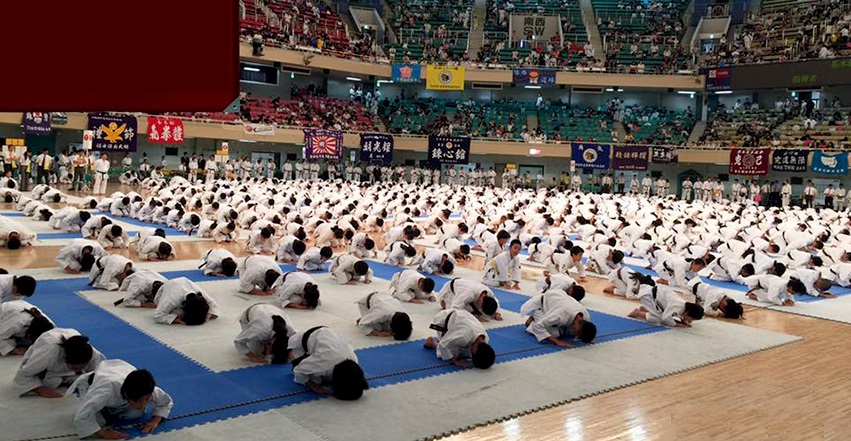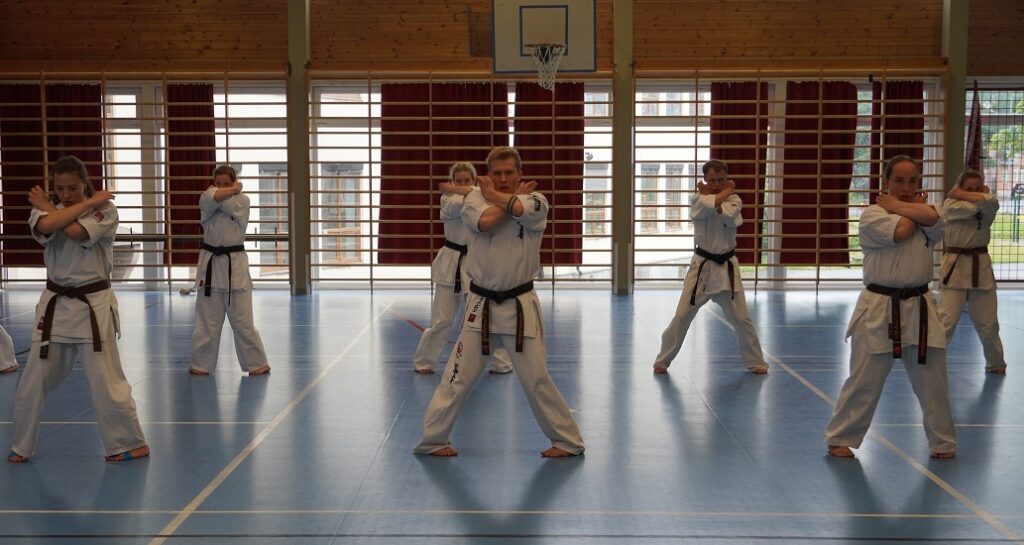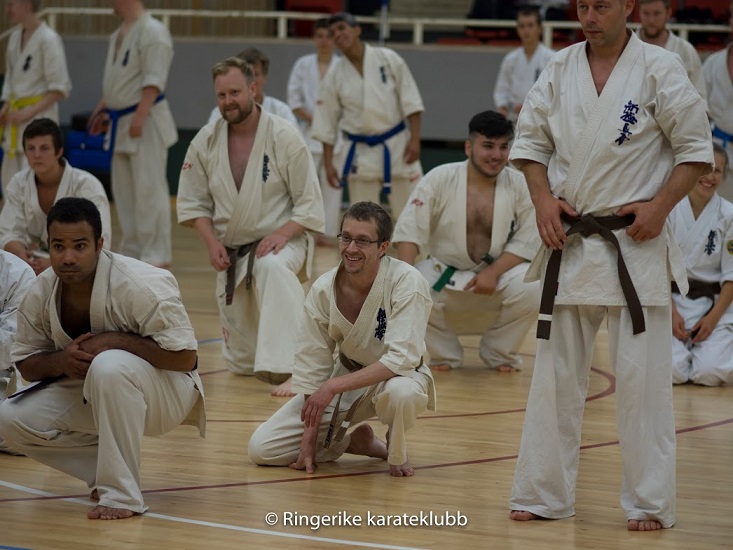Karate as a path of simplifying by 16.05.2025 Nikolaj Vigand Lunn Jensen
“The suffering of the world teaches us the dangers of ignoring spiritual cultivation.” When I read this line in the foreword to Seeing with the Eye of Dhamma, I felt one step closer to answering a question that has quietly festered in the back of my mind for the past year: Why karate?
The “eye of Dhamma” It symbolizes enlightened insight into the nature of existence, including the teachings of the Buddha. 
I know the nature of the question shifts depending on where a karateka is in their journey. In the beginning when promoting our endeavors, we highlight all a practitioner can gain: self-defense, international friendships, colorful belts, the highs – and lows – of competitions. This idea of gaining continues for a lot of us throughout many, many years. After all, we’re human.
But once we’ve won those trophies or tied that long-desired belt around our waist, some begin to feel their journey is complete. I believe this is a common experience across many dojos losing members. The usual reasons for leaving the dogi in the closet are understandable: life gets busy. We enter relationships, raise families, care for elders, navigate careers. All valid. But it is precisely then, when life grows turbulent, that karate reveals itself as a spiritual path of great value.
In a perfect world, I would like to hope that after some years in a Dojo, when one has progressed on the material path of karate, the spiritual path begins to develop. For some it starts as an almost silent ignition, a taste of something beyond acquiring titles and trophies. For others, it enters life by forcefully kicking in the door: a serious injury, the closing of a Dojo, parting with friends after arguments and disputes, or having—and losing—what one loves most. Nonetheless, this is a necessary step for all who wish to tread a path of true significance and liberation.
By training in the Dojo, on the tatami, and in daily life, we learn that focus only arises through simplicity—by letting go. In the same manner, I’ve come to see Kata not as an art of accumulation, but of subtraction: cutting away excess, one layer at a time. It usually goes like this: learning the pattern of a Kata takes a day; unlearning what was unconsciously added takes decades.
In addition, I have experimented with only wearing one outfit as to avoid indulging in the modern obsession of “fashion”. I’ve stripped my possessions down to dogis, books and utilities, and I eat the same three meals every single week. Finally owning a TV after five or six years without one, feels like a violation to this spartan lifestyle. I found, and continually experience, that simplifying is the key to focus, and focus the key to tranquility. Ask yourself: Why are training camps, despite their physical demands, the most peaceful time for the mind? Because we don’t bring our possessions, whether physical or mental. I don’t imagine I’m alone in this. After all, the internet is loaded with quotes like “Eat, Sleep, Train, Repeat”. I believe this is a general sentiment. To push one’s discipline and effort to the limit, one must renounce—and in that very renunciation, one ultimately finds freedom from the worldly winds.
Being a teacher, I witness—astonishingly often, though thankfully not always—young people in distress. They are knowledgeable, competent, and kind, yet unsure where to skillfully direct their energy, which mental seeds to plant and water. Netflix. Endless partying. Drama. Fashion. These often win out in what becomes, detrimentally, a quick-satisfaction lottery. In essence, when the dopaminergic mind gets what it wants, the heart disappears. I feel it too. At times, I lose sight of the path—and it’s the suffering, both mine and others, that brings me back. Putting on the Dogi. Returning to practice. When I ask people about modern life, I sometimes hear: “YOLO”, life is short, do as much as you can. I find this rationale not just frightening, but hollow.
The world offers countless experiences and distractions at our fingertips, each clamoring for our attention. But to chase everything superficially is to become a slave to endless diversion—at the cost of finding peace in a few meaningful pursuits and discovering oneself through them. After all, the great Miyamoto Musashi wrote in The Book of Five Rings: “From one thing, know ten thousand things.” Alas, from ten thousand things, know nothing.